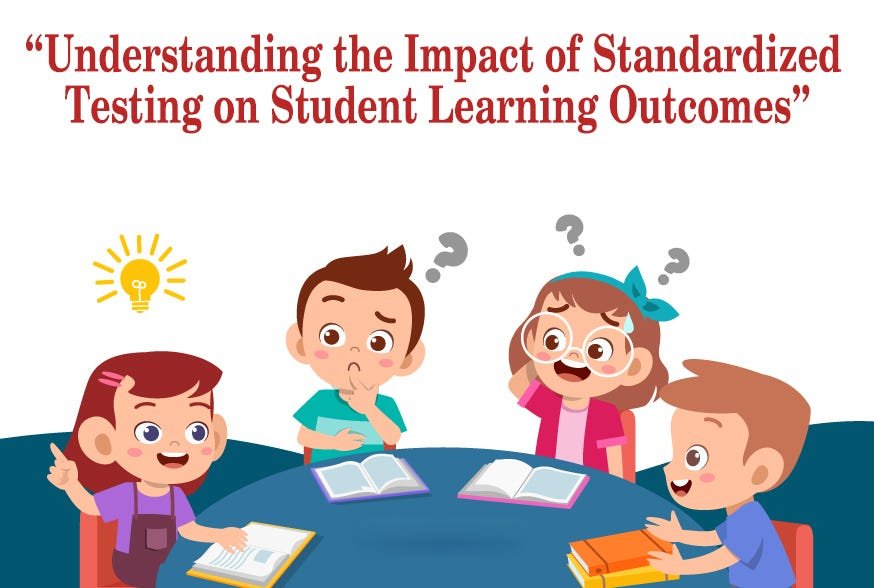Standardized testing has long been a cornerstone of educational assessment worldwide, offering a means to measure student performance, evaluate learning outcomes, and assess educational quality. This article delves into the role, significance, challenges, and impacts of standardized testing in global education systems, exploring its benefits, criticisms, and evolving trends in educational assessment.
Understanding Standardized Testing
Standardized testing refers to assessments administered to students using consistent procedures, formats, and scoring methods across different schools, regions, or countries. These tests aim to measure students’ knowledge, skills, and academic proficiency in specific subjects or domains, providing a standardized benchmark for comparison and evaluation.
1. The Role of Standardized Testing
Assessment and Accountability:
- Measuring Learning Outcomes: Standardized tests assess students’ understanding of academic content, application of skills, critical thinking abilities, and problem-solving capabilities in subjects such as mathematics, reading, science, and language.
- Educational Accountability: Standardized testing holds educational institutions, policymakers, and stakeholders accountable for educational outcomes, school performance, and curriculum effectiveness, driving improvements in teaching, learning, and educational policies.
Data-Driven Decision Making:
- Informing Instruction: Test results provide data and insights to educators, administrators, and policymakers, guiding instructional strategies, curriculum design, intervention programs, and targeted support for students based on their learning needs.
- Identifying Trends: Standardized testing helps identify trends, patterns, and areas of improvement in educational systems, informing resource allocation, educational reforms, and evidence-based decision making.
2. Impacts of Standardized Testing
Student Performance:
- Benchmarking Achievement: Standardized tests benchmark student performance against national or international standards, facilitating comparisons, identifying achievement gaps, and monitoring academic progress over time.
- Motivation and Preparation: Test preparation can motivate students to study, review content, and develop test-taking strategies, enhancing academic readiness, study skills, and test performance.
Educational Equity:
- Identifying Disparities: Standardized testing can reveal disparities in educational outcomes among student populations based on factors such as socio-economic status, ethnicity, language proficiency, and access to resources, prompting efforts to address equity issues and provide targeted support.
- Ensuring Fairness: Fair testing practices, accommodations for diverse learners, and measures to mitigate biases contribute to ensuring fairness, validity, and reliability in standardized assessments.
3. Criticisms and Challenges
Teaching to the Test:
- Narrowing Curriculum: Teaching to the test may lead to a narrowed curriculum focus, prioritizing tested subjects and topics at the expense of broader educational goals, critical thinking skills, creativity, and interdisciplinary learning.
- Pressure and Stress: High-stakes standardized testing can create pressure, stress, and anxiety among students, educators, and schools, impacting well-being, mental health, and learning experiences.
Validity and Reliability:
- Validity Concerns: Critics question the validity of standardized tests in capturing the full range of student abilities, knowledge domains, and learning outcomes, highlighting limitations in assessing complex skills, real-world application, and higher-order thinking.
- Reliability Issues: Reliability challenges, such as test item quality, scoring consistency, and test administration protocols, may affect the accuracy and consistency of test results, leading to concerns about fairness and reliability.
4. Evolving Trends and Innovations
Adaptive Testing:
- Personalized Assessment: Adaptive testing technologies tailor assessments to individual student abilities, adjusting question difficulty based on responses, providing personalized feedback, and enhancing assessment accuracy and efficiency.
- Formative Assessment: Formative assessment approaches complement standardized testing by providing ongoing feedback, progress monitoring, and learning support throughout the instructional process, promoting student engagement, self-regulation, and continuous improvement.
Competency-Based Assessment:
- Skills Mastery: Competency-based assessment focuses on measuring students’ mastery of specific competencies, skills, and learning objectives rather than traditional grade levels, promoting deeper learning, skill development, and real-world application.
- Portfolio Assessment: Portfolio assessment allows students to showcase their work, projects, and achievements across diverse learning experiences, providing a holistic view of student learning and growth beyond standardized tests.
Conclusion: Balancing Assessment Strategies in Education
Standardized testing remains a valuable tool in educational assessment, providing valuable data, insights, and accountability mechanisms in global education systems. However, its role must be balanced with diverse assessment strategies, such as formative assessment, competency-based assessment, and performance-based tasks, to capture the richness and complexity of student learning, promote deeper understanding, and foster holistic development. By embracing innovative assessment approaches, addressing criticisms, and valuing multiple measures of student achievement, education systems can create inclusive, equitable, and effective assessment practices that support student success, lifelong learning, and educational excellence.
